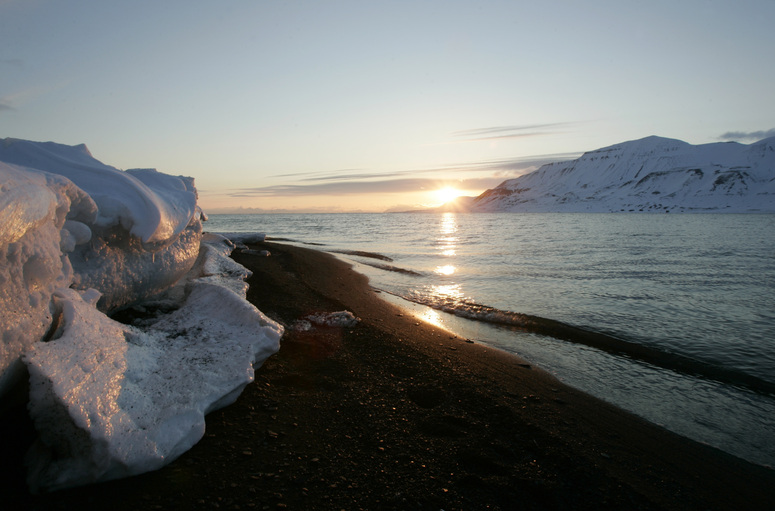NATO Science Programme addresses environmental security in the Arctic Ocean
From 13 to 15 October 2010, a NATO-funded workshop is analysing the changing environment of the Arctic Ocean and its potential economic, political and cultural impact both regionally and globally. Taking place at the Scott Polar Research Institute, University of Cambridge, in the United Kingdom, it will bring together more than 80 experts from NATO and partner countries including Russia, and China. The workshop is supported by NATO’s Science for Peace and Security (SPS) Programme and addresses environmental security, an SPS key priority.

The goal of the workshop is to engage scientists, international legal authorities and policy-makers in characterising environmental security risks in the region. The participants will try to identify and assess these risks against the backdrop of international governance challenges and explore opportunities for cooperation.
Participants from the Arctic Coastal Nations (Canada, Denmark, Norway, Russia and the United States) will discuss the region’s melting ice and the emerging energy, shipping, fishing and tourism interests that will follow. These trans-national activities, if not properly regulated, pose a myriad of new challenges.
Currently there is insufficient data on the impact of increased human activity on the Arctic’s ecosystem. With commercial activities in the Arctic sea lanes on the rise, there is growing interest from non-Arctic nations to formalise the region’s governance, as reflected in the European Parliament’s 9 October 2008 Arctic resolution.
Many view the growing international interest in the Arctic Ocean as a direct challenge to the High North nations who have historic interests in the region. This was articulated by the five Arctic Coastal States in the 28 May 2008 Ilulissat Declaration with regard to “their sovereignty, sovereign rights and jurisdiction in large areas of the Arctic Ocean”.
At the event there will be contributions from 14 key speakers, including experts from world renowned institutions such as the Arctic Council, the United Nations Law Commission and the European Parliament.
For more information please visit www.nato.int/science (see “Calendar” for organizers’ contact details).
